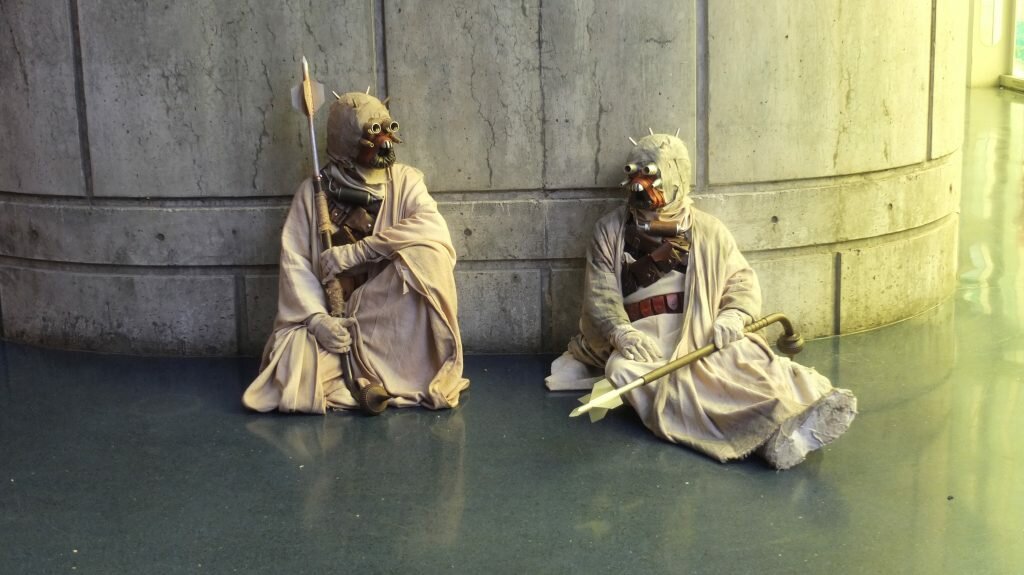Spoiler alert: Daenerys Targaryen never got to sit on the Iron Throne. After eight seasons of conspiracies, betrayals and mud-caked skirmishes, Game of Thrones concluded earlier this year with our esteemed Khaleesi dousing King’s Landing in massive dragon fire before dying at the hands of her nephew/lover Jon Snow. Momentous! But totally exasperating to boot. That Daenerys, breaker of chains and protector of innocents, should suddenly and callously barbecue an entire city of civilians seemed, um, uncharacteristic to many.
Fans penned rage-filled tweets (“Hey HBO, you got more than her coffee order wrong”), then took to IMDB to swarm the finale with bad reviews (it’s the worst-rated GoT episode). Special ire was reserved for series’ creators David Benioff and DB Weiss, who became the targets of an online petition unambiguously titled “Remake Game of Thrones Season 8 with competent writers”. It’s garnered 1.7 million signatures and counting.
That’s a lot of noise for an hour of television — testament to GoT’s cultural might but also to the fans that made it so. After all, what’s a show without an audience to turn it on? We’re not talking about the people who sit back and idly consume their pop culture, but full-on aficionados who enthusiastically engage and participate in the movies, music, games and TV shows they love. Some attend fan events and collect autographs, some create fanzines or fansites, while others write fan fiction, make fan art and cosplay their favourite characters.
These fan activities are as time-honoured as the USS Enterprise and form the foundation of fan communities or fandoms. And fandoms, which trail everything from Sherlock to BTS to the Marvel Cinematic Universe, have the power to make or break pop culture.

Unfortunately, it’s often for the latter reason that fandoms make the news. Recall the commotion Ghostbusters fans made over the 2016 all-female reboot of their precious movie, or the campaign in October last year by Lady Gaga’s dedicated army of Little Monsters, who flooded Twitter with fake pans of Venom to drive people to the Gaga- starring A Star is Born, which premiered on the same day.
Meanwhile, Star Wars obsessives have become particularly adept at unleashing online vitriol at even the minutest attempt to diversify or evolve their galaxy. No, the Internet and social media don’t always bring out the best in fans (looking at you, Swifties). Then again, these instances hardly represent an entire fandom, but are obviously the work of a rabid minority of trolls, misogynists or bad actors.
When fans use their powers for good, however, fan culture is all the better for it. Witness fan rallies, petitions and letter-writing efforts that have rescued shows like Star Trek and Arrested Development from cancellation, or fan communities like the Harry Potter-loving The Leaky Cauldron that offer fellow devotees a place to call Hogwarts. Better yet are those who have expanded and enriched their revered canons with fan art and fanfic. Want a world where the Avengers turn up on Middle Earth? Or where Panic! At The Disco’s Brendon Urie and Ryan Ross are a lot more than bandmates? How about one where Walter White lives? Well, fans have made all that happen.

Claudia Rebaza was one such “fannish person” who was once deep into the Buffy the Vampire Slayer fandom on LiveJournal. Today, she’s part of the team at the Organization for Transformative Works, a non-profit dedicated to preserving fanworks and fan cultures. Since 2009, it has run Archive of Our Own (AO3), a Hugo Award winner and the Internet’s most popular repository of fanfic spanning 33,000 fandoms. Naturally, to Rebaza, these fan creations or transformative works matter.
“Fanworks reflect that fandoms are living things, many of them extending the life of the canon at their centre for decades or centuries,” she explains.
These days, fanfic is no longer some hidden province of fantasy fulfilment. EL James saw to that when her especially kinky Twilight fanfic published in 2012 as an original novel with new character names. 50 Shades of Grey precipitated a swell of fanfic writers emerging into mainstream publication — Mortal Instruments’ author Cassandra Clare’s Lord of The Rings fanfic was the stuff of online legend — earning fans and fan fiction their bona fides. If media producers weren’t already taking note of fandoms, they were now. Soon enough, fans would no longer have one-sided conversations with pop culture; the canons would talk back.
“I’ve noticed that there are many more stories involving fans that have ended up in canon sources,” says Rebaza, “probably as a result of this increasing visibility of fans as a group responding to those on the production side.”
-

-

Steve Harrington fanart by Olrazzledazzle (givemtheolrazzledazzle.tumblr.com), 2019
For sure, it’s not uncommon for movies and TV shows to now be dotted with meme-able moments or fan service — that is, storytelling choices intended to please fans. A primo example: Stranger Things, which, since its second season, has capitulated to its supporters’ wants by making sure Barb got justice and fan fave Steve Harrington got extra screen time. And come on, Steve spending so much of season three in a silly sailor outfit was pure GIF bait. More recently, animated movie Sonic the Hedgehog had its release date pushed back to 2020 so filmmakers could redesign its main character, whose human-like teeth, revealed in a trailer, horrified viewers on Twitter.
So really, who gets the final say on these pieces of culture? Maybe it’s helpful to think of pop culture these days less as a fully- formed product descended from on high and more as an ongoing collective project, a sustained dialogue between the desires and demands of producer and fan. As Rebaza points out, “cultural works are communal property”. Because we all partake in it, something like Twilight belongs to us all — not in any legal sense, of course, but figuratively and for Twi-hards, perhaps sentimentally.

By the same token, if pop culture is communal, it shouldn’t have to comply with any fan’s specific wishes. Instead of launching an Annie Wilkes-style online petition, anyone frustrated with a canon might be better off producing corrective fanworks or simply voting with their feet. Canon creators, as we’ve learnt, are looking back at us.
Just revisit Friends, which marked its 25th anniversary this September, and its most iconic couple. No, not Ross and Rachel, but Monica and Chandler, or Mondler as they’re known in fan circles. The show’s writers and producers were initially resistant to turning that romantic pairing into anything beyond a one-night hookup and short-term plot point. But when the episode where Monica and Chandler wake up in bed together (“The One With Ross’ Wedding, Part 2”) commenced filming, the reveal triggered an epic explosion of surprised gasps and cheers from the live audience.
Their overwhelming response cemented Mondler forever. “They were just blown away by it,” executive producer Scott Silveri told Vulture. “It was so intense, for the second or third takes, instead of watching the monitors, I just turned around and watched the audience.”
This story first appeared in the November 2019 issue of A.
